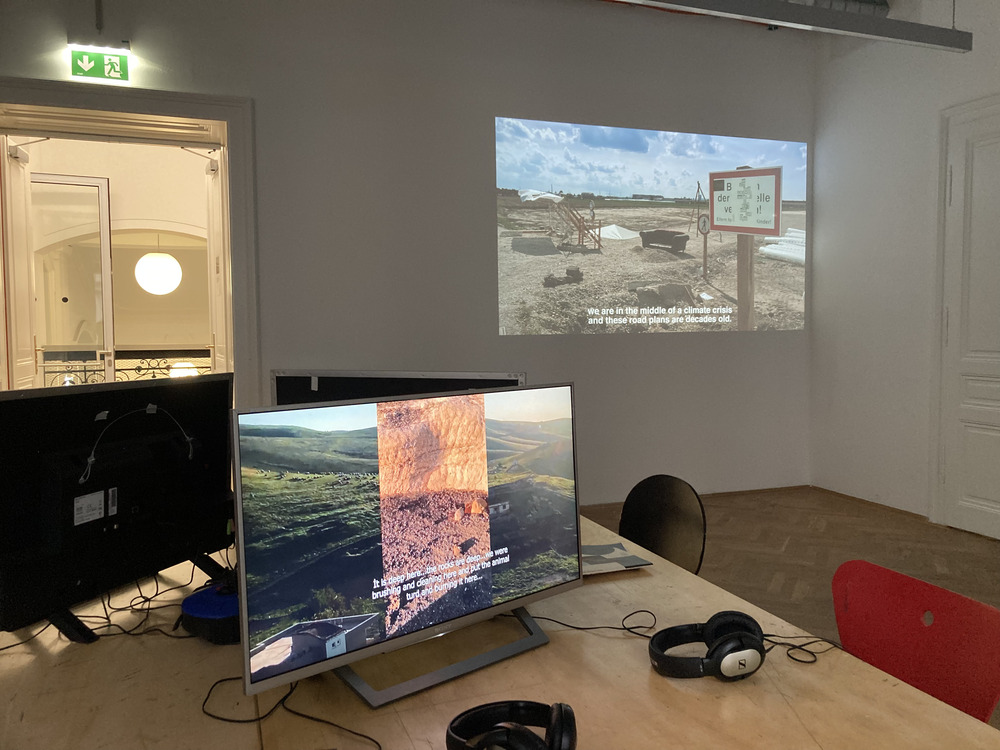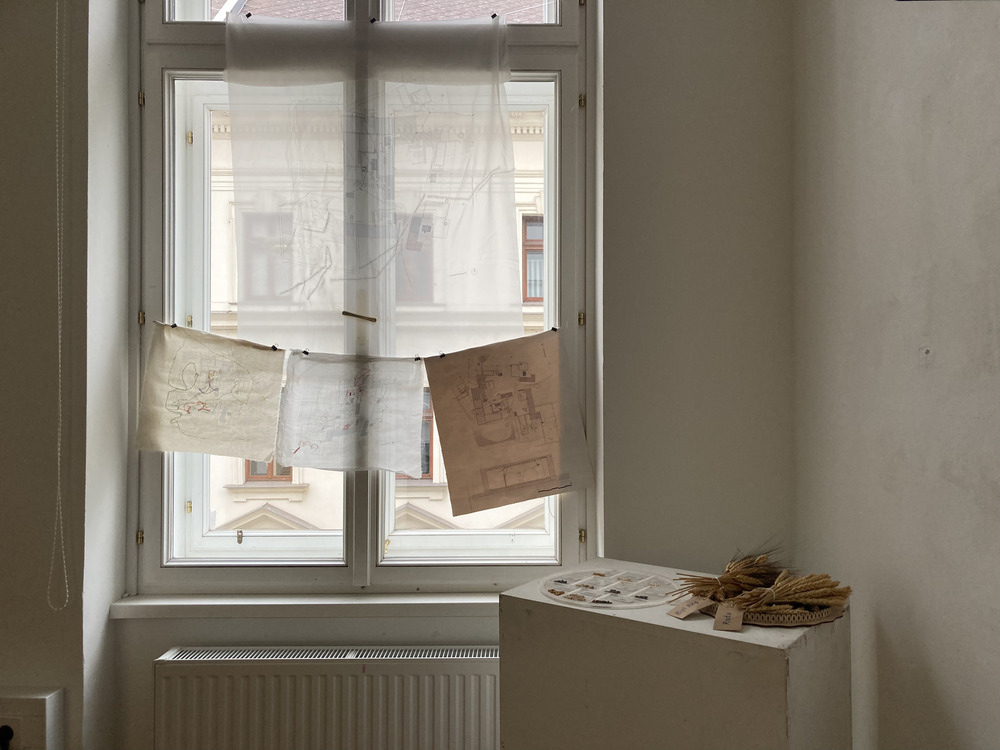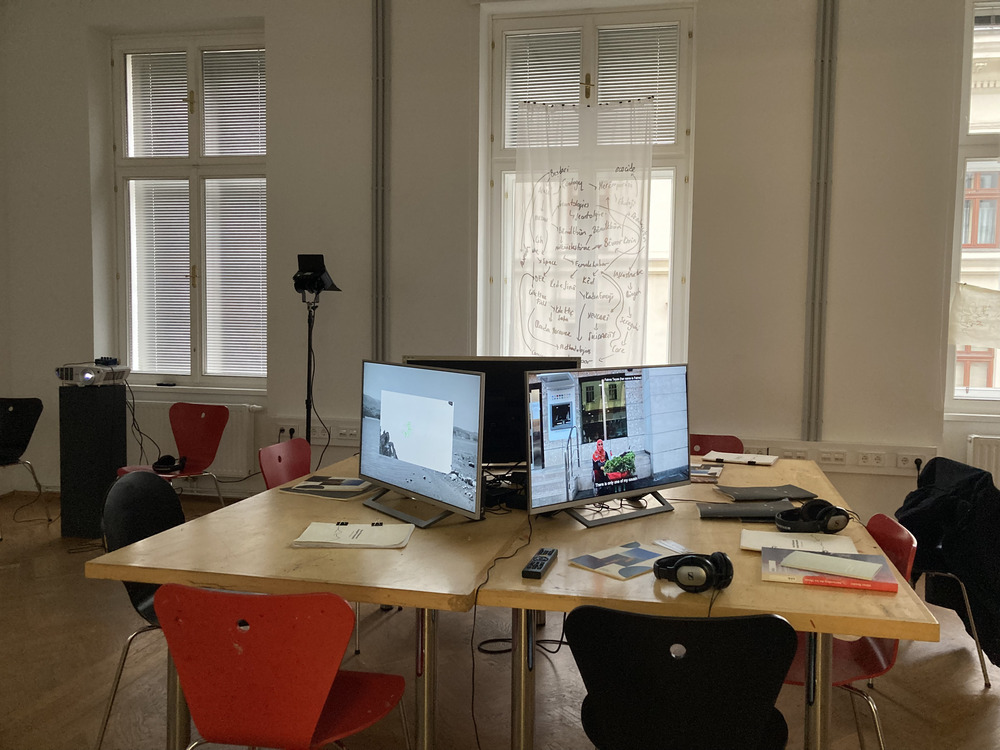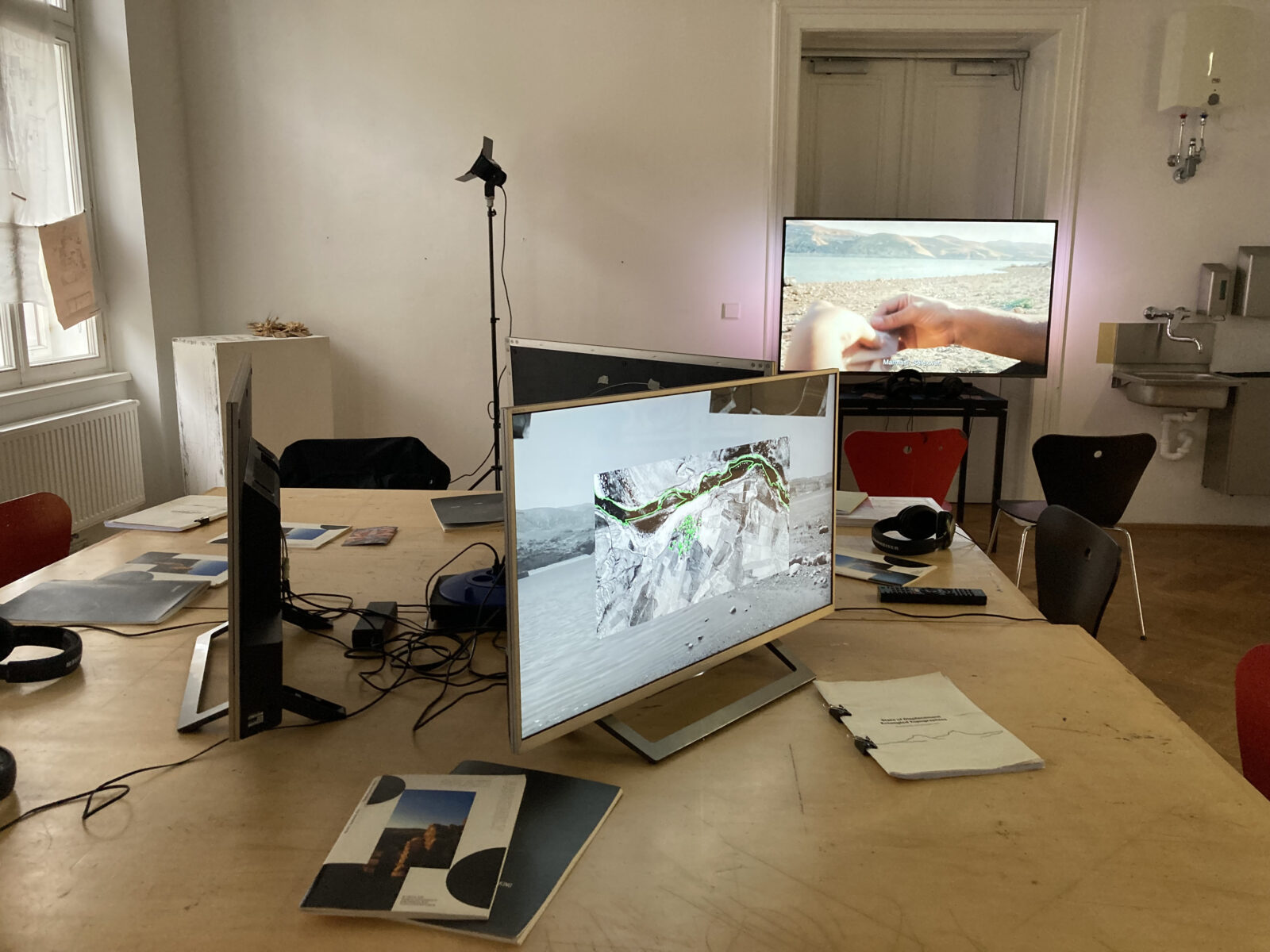Arazi Collective
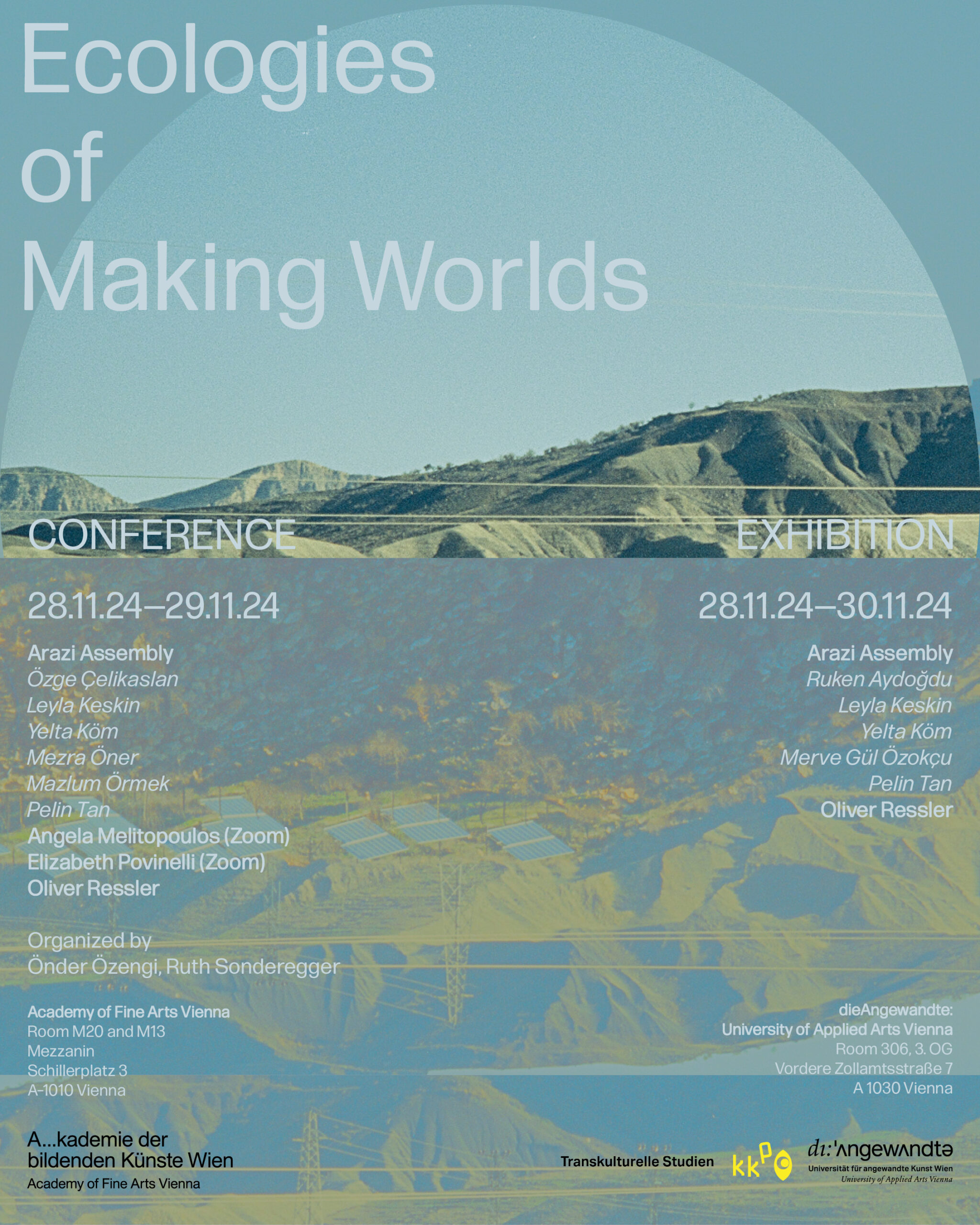
Join us for an evening of readings and mistranslations, conjuring empowering pasts and imagining abolitionist futures.
November 28 and 29, 2024
Schillerplatz 3, 1010 Wien
Räume M20 und M13a
November 28, Exhibition Opening: “Ecologies of Making Worlds” at the University of
Applied Arts Vienna, Vordere Zollamtstrasse 7, 1030 Vienna, Room 306
The conference looks at projects of world-making and their particular relationality that
emerged in the form of extraction, conflict, and destruction, as well as resistance, collective
mourning, solidarity, companionship, and alternative forms of kinship in very specific
geographies.
As opposed to the uniformity of the world, which John Law calls a one-world world, which
operates by constructing the other worlds in their own form, Ecologies of Making Worlds is
marked by the acknowledgment of heterogeneity. Heterogeneity appears in the ways worlds are made as well as in the modes of their relation. However, the world-making processes and the interrelations of different worlds are not harmonious and peaceful.
The geographies and worlds the conference focuses on are the Upper Tigris region in
Southeastern Anatolia, Turkey, which Kurds, Yazidis, and Assyrians inhabit. This region
spans many worlds and has been subjected to many one-world world projects, such as
extractivism, war, occupation, forced displacement, assimilation, or, in a nutshell,
colonization. The region is named in multiple ways, and this implies that the region
comprises many worlds that have been subjected to many one-world world projects, like, for example, extractivism, war, occupation, forced displacement, assimilation, or, in a nutshell, colonization.
Arazi is an assembly initiated by researchers with diverse backgrounds: artists, academics,
and architects. Despite the meaning of the term arazi (territory), which in Turkish refers to an empty space, a space that has lost its status of having significance, the assembly’s practice reattributes agency to the particular arazi(s) to reveal and inquire about the coloniality inscribed in them. The colonization process in the region and, thus, Arazi’s matter of concern, include forced displacement, privatization, extraction, and many forms of war, as well as the consequences of the very process of colonization that range from social and ecological destruction and extinction to forms of world-making practices in the regions. The assembly’s research looks at diverse forms of human infrastructures, such as water dams, and abandoned land that make colonial projects possible, as well as alternative ways of world-making, such as collective kitchens, urban gardening, and other forms of infrastructure that are constituted by multiple social relations.
The media Arazi Assembly produces are multiple, as are the tools and methods they use.
They are archiving, filming, mapping by conducting interviews, and organizing community
meetings; in other words, the assembly aims to reproduce the arazi(s) as a space with
memories, economies, and socialites that resist the colonial and extractivist one-world world projects.
Nevertheless, the conference’s scope extends beyond the specific conflict-ridden world
makings in the Kurdish region in Turkey. Departing from the practice of Arazi in a particular
region, the conference intends to expand the discussion towards other geographies, artistic methodologies, and ways of engagement with geographies of conflict.
Angela Melitopoulos works in many conflicted geographies, focusing on migration to
resistance against extractivist world projects. Her research methodology in approaching the territories is not oriented to documenting reality; Melitopoulos uses video as a means of research in producing visual memory. In that sense, in her methodology, tools have an
agency in making reality and worlds.
Anthropologist Elizabeth Povinelli opens up what she calls anthropology of the otherwise,
anthropology of alternative worlds of life forms that emerge within dominant worlds. Povinelli develops the term geontopower to explain how dominant settler colonial and liberal capitalism operates by controlling and managing the difference between life forms and even between Life and Nonlife through the figures of the Desert, the Animist, and the Virus.
Oliver Ressler’s research, e.g., is centered around social and environmental destruction that
extractivist capitalism creates and alternative practices of world-making that flourish amidst environmental destruction in different geographies. He travels to film the materiality of partial but relational social and ecological destruction in different geographies, participates in diverse protests and occupations where alternative worlds emerge, and joins organizing meetings, which he disseminates through various mediums.
Ecologies of Making Worlds also brings together the works of artists and researchers from
Arazi Assembly together with Oliver Ressler‘s work entitled The Desert Lives, which will be
exhibited at Universität für Angewandte Kunst.
// The conference is organized by Önder Özengi and Ruth Sonderegger and kindly supported by the Academy of Fine Arts Vienna. The exhibition is hosted and supported by the University of Applied Arts Vienna – Art and Communicative Practices and Transcultural Studies //
